Native-owned dispensaries are booming throughout the state. Here’s how tribes statewide are claiming stake of New York’s next big industry.
From Leafly by Calvin Stovall November 7 2022
More than a year after the state legislature passed a legalization bill, New York’s Office of Cannabis Management (OCM) said it is on track to open roughly 20 dispensaries to kick off the adult-use market before the year’s end. In the meantime, state regulators and law enforcement have mostly looked the other way as a “gray market” filled the void of legal stores.
While legacy operators, residents with cannabis convictions, and out-of-state operations have dominated discussions about the future of New York’s multi-billion dollar cannabis plans, another group is quietly making most of the small window without government interference: Indigenous operators, including the Oneida, Shinnecock, and Seneca Nations now have their own legal shops, and are poised for long-term prosperity in the market.
“What’s happening on tribal lands right now, it’s outside our purview. That’s their land.”
Chris Alexander, director of the New York State Office of Cannabis Management
Once the state begins allowing licensed cannabis operators to open next month, a gray market crackdown could be imminent. But Indigenous operators exist in a unique legal situation that comes with a certain amount of sovereignty. State cannabis laws do not apply on reservation lands.
“Dispensaries (marijuana shops) are legal if they are on federally recognized, sovereign tribal land,” the New York Office of Cannabis Management said in a December, 2021 statement.
“Because we don’t need a license from the state, because we don’t have to have permission to enter in the industry from the state, we are a true, authentic Native American cannabis business… This business is going to not only provide jobs, and establish careers in an industry, but also have business-to-business with other tribal members.”
Chenae Bullock, managing director of Little Beach Harvest, Shinnecock-owned business
From Long Island to the New York-Canadian border, these Indigenous-owned cannabis operations are planting firm roots in New York’s budding cannabis industry.RelatedTribal weed stores are booming. Here’s where to find them
The Good Leaf dispensary in Salamanca, NY
“We’ve got a place for you to stay, we’ve got weed for you to smoke.”
Jay John
Jay John and his father Ross John run Good Leaf Dispensary in Salamanca, and hope to open a 420-friendly hotel one day. Salamanca is the only US municipality that leases land from Native people, according to a recent New York Times profile of Good Leaf.
For now, the dispensary wows customers with menu items like Rez Rockets, pre-rolls coated in oil and crystals that will take you to space for $25. Good Leaf’s long-term plans include cannabis tourism offerings, like winery tours and hotels with consumption lounges. They also want to shuttle guests between the hotel and the casino, allow 420-friendly rooms, and host video game tournaments.
Saint Regis Mohawk Tribe
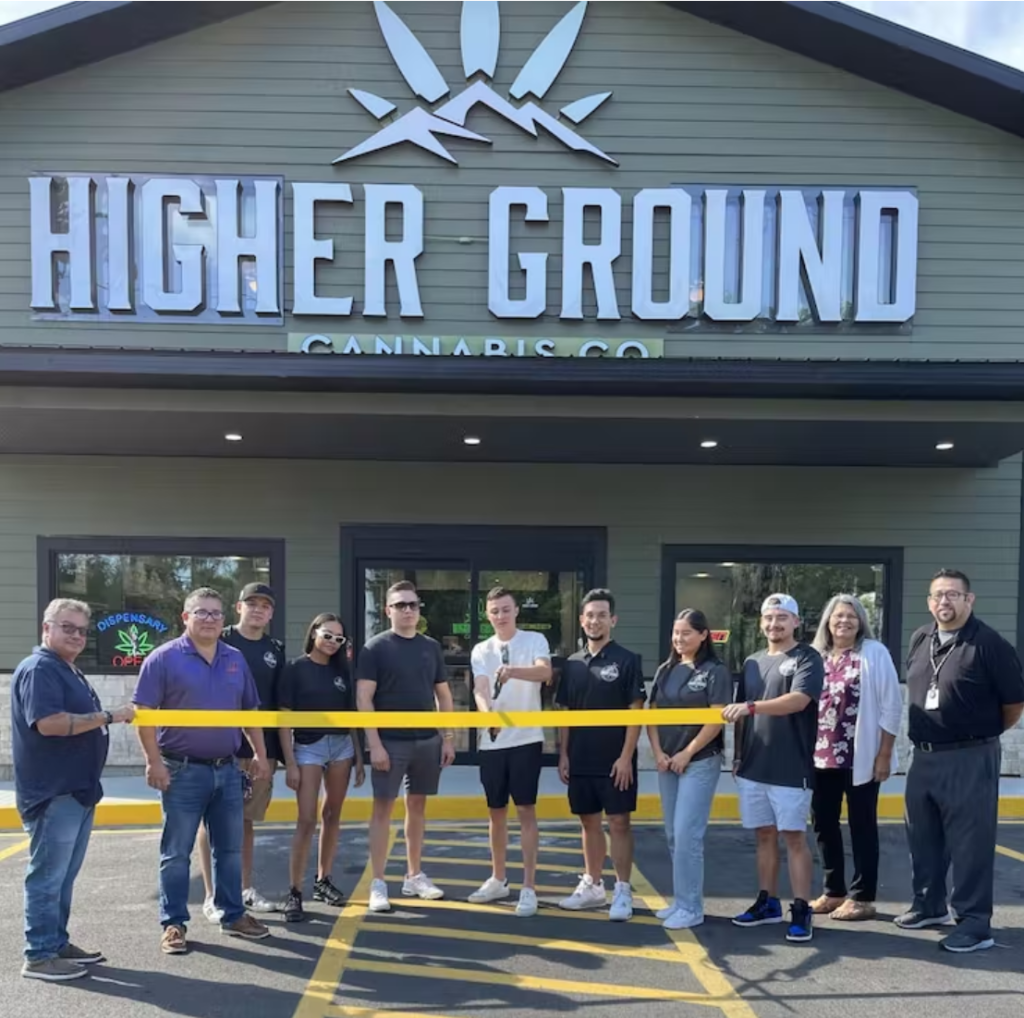
Right where the Canadian border meets the northern tip of New York, the Saint Regis Mohawk Tribe oversees dozens of tribe-licensed dispensaries. And plenty of unlicensed operators are also getting in on the action.
The unlicensed operators are controversial within the community. Some tribal leaders have condemned members opening dispensaries without approval. Leaders have argued in tribal court that unlicensed operations deprive the entire tribe, including elders and children, of capital for healthcare and education.
To learn if a dispensary is tribe-licensed, contact the Saint Regis Mohawk Tribe’s Cannabis Control Board’s website, call at (518) 358-2272 ext. 2167, or email at ccb@srmt-nsn.gov.
Saint Regis Mohawk Tribe’s licensed cannabis sellers
So far, 16 licensed retailers and five cultivators have been licensed by the Saint Regis Mohawk Tribe. See the full list of retailers and their locations here, or scan below.
- Budders Cannabis Store LLC, located at 508 State Route 37
- King Canna, located at 8 Raquette Point Road
- Weedway, located at 935 State Route 37
- Dank Bank, located at 25 Water Street, Fort Covington
- Not Another Pot Store, located at 76 Beaver Meadow Road
- Diamond Dispensary, located at 147A Raquette Point Road
- Exotika Dispensary, located at 227 State Route 37
- Prime Cannabis, located at 1600 State Route 37
- Higher Ground Cannabis Co, located at 300 State Route 37
- Sovereign Retail, located at 8 State Route 37, Suite 1
- Green Reserve Dispensary, located at 484 State Route 37
- Crossroads Cannabis, located at 612 State Route 37
- Lawless & Co., located at 1744 State Route 37
- Roach Coach, located at 580 State Route 37
- Belushi Farms, located at 987 State Route 37
- Sovereign Retail, located at 2381 Chateaugay Street, Fort Covington
Shinnecock Nation
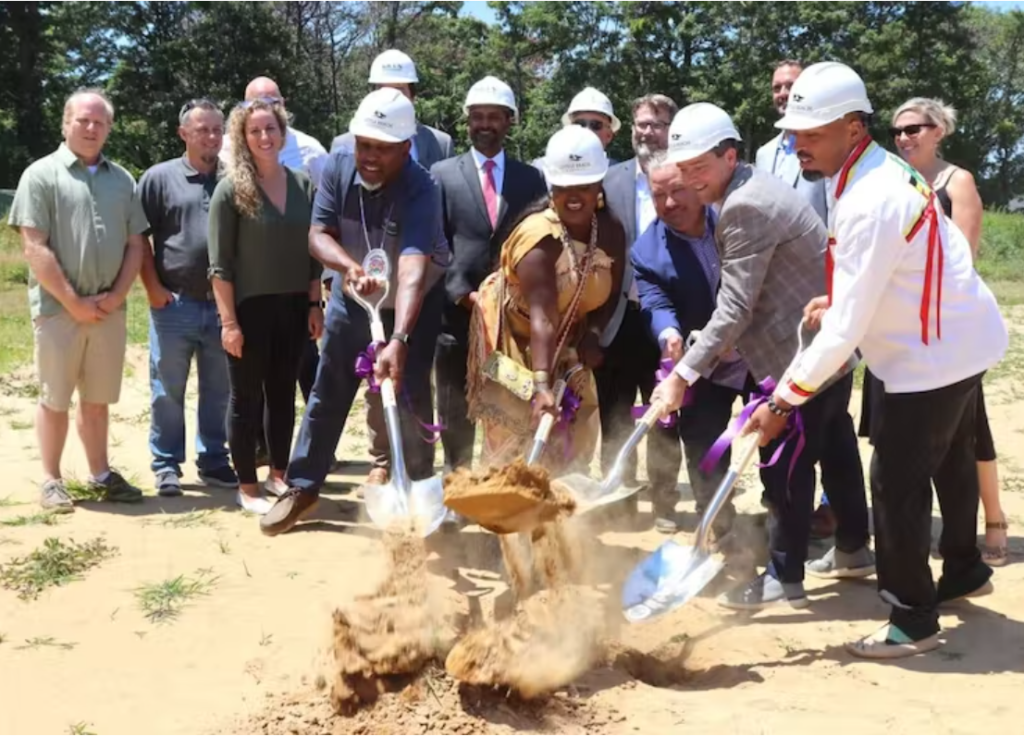
Located on tribal territory in Long Island, the massive Shinnecock Nation broke ground on a 5,000-square-foot dispensary that should open in early 2023.
The Little Beach Harvest dispensary will be aided by management services from TILT Holdings, but will be 100%-Shinnecock owned. TILT will add $18 million to help build a seed-to-sale operation including a dispensary, wellness center, and 60,000 square-foot cultivation, processing, extraction and packaging plant. The Long Island operation will be right next to Southampton (The Hamptons), an affluent vacation spot.
“What we’re doing with this sacred plant is going to heal not only the Shinnecock community, but people around the world.”
Chenae Bullock, Little Beach Harvest
Cayuga Nation
In central New York, the Cayuga Nation is allowing members to sell cannabis out of the tribe’s many gas stations. They also have plans for a beautiful new dispensary near Syracuse and Cayuga Lake.
“As a sovereign nation, the Cayuga Nation can grow and sell cannabis within its reservation’s boundaries… Our vision for the future of the Cayuga Nation remains focused on bettering the lives of our members, our community, and our neighbors… As we venture forward in our economic development, we remain committed to working closely with local governments to ensure the health and safety of our community.”
Cayuga Nation officials via public statement
The OCM “has the ability to enter into agreements with tribes through tribal compacts to integrate them into the state program if all parties can agree to terms,” though no such agreements exist yet.
Since November 2021, The Cayuga Nation has been selling marijuana at the Lakeside Trading business in the village of Union Springs, with locations at 3202 E. Bayard St Seneca Falls, NY and 271 Cayuga St Union Springs, NY.RelatedNew Yorkers with weed convictions will have priority in retail market, state says
Oneida Nation
The Oneida already run Turning Stone casino and resort near Utica, and the tribe recently said it will open dispensaries after completing a 50,000-square-foot cultivation and production plant. The tribe plans to launch officially by 2023, but it has chosen not to openly sell on the gray market until their operation is up and running at full scale.
Sales will be regulated by the Oneida Indian Nation Cannabis Commission, an independent body that oversees safety and compliance. It all started with a 2013 Settlement Agreement between New York and the Oneida Indian Nation and neighboring Oneida and Madison counties. Taxes will go to the tribe, instead of the state to fund public safety, health care, affordable housing, education, and cultural preservation. The Oneida Nation’s Cannabis Commission also enforces age restrictions, purchase limits, license requirements, safety assurances.
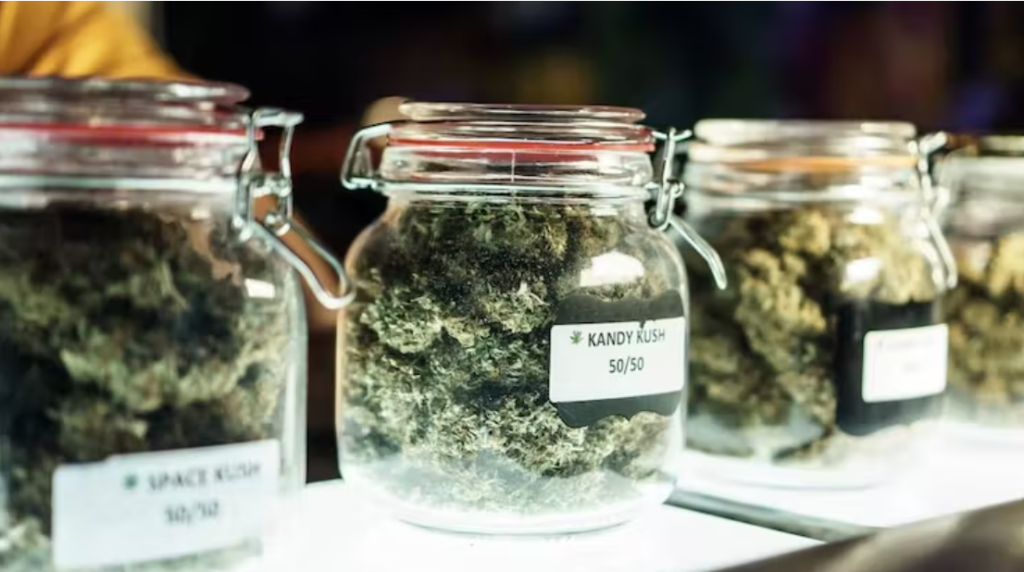
Seneca Nation
Seneca Nation territories cover nearly 53,000 acres across five New York counties. Tribal officials estimate there are 100 active dispensaries in the tribe’s Cattaraugus and Allegany territories, which serve medical patients and adult-use buyers driving up to New York to escape Pennsylvania’s prohibitive laws and pricing.
New York counties, like Cattaraugus County, which has reportedly opted out of allowing dispensaries in their borders, are also sending customers straight to Native-owned operations that are reclaiming a piece of the American Dream that was built on their loss and suffering.
You can find more info on the Seneca Nation’s long term cannabis plans here. The tribe’s website currently lists applications and regulations for hemp producers. Leaders are also requiring lab testing certificates of analysis (COAs) to protect customers and raise quality. And this week, the Nation announced they will open a dispensary in Niagara Territory near downtown Niagara Falls.
“We’re trying to differentiate ourselves from everybody else. New York State for one, they don’t share any information with you about their test results,” said Mike, an operator of 420 Rez Bud, a new tribal dispensary in West New York. “We’re already doing more than them by providing strain genetics and information about how it was grown, and if they want to know who it is grown by we know who they are and we have files for everything,” Mike told Cannabuff this year.

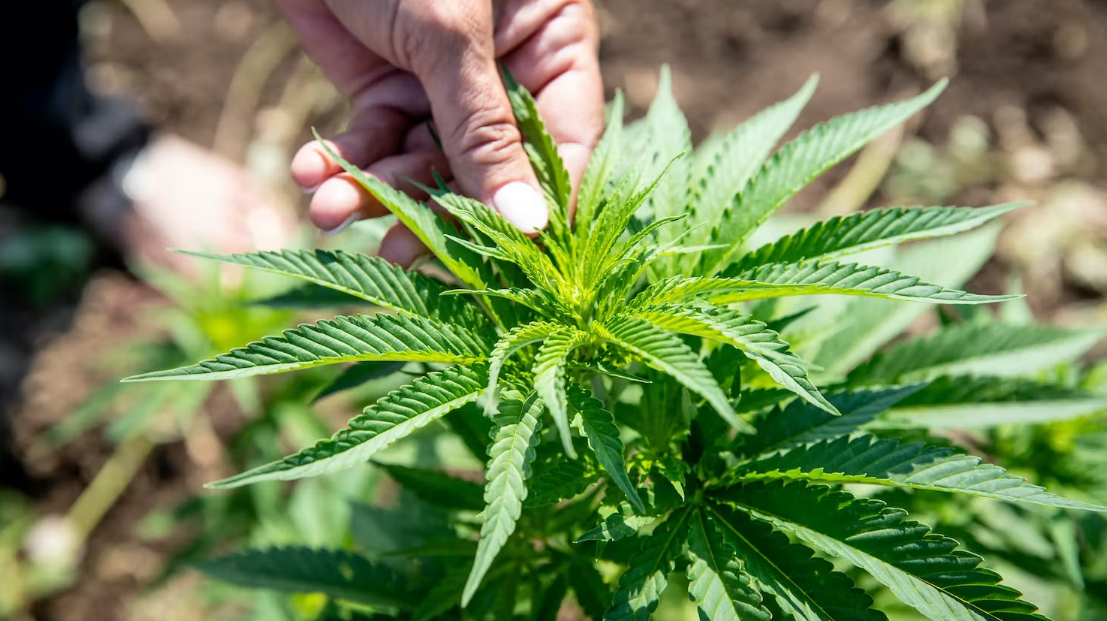
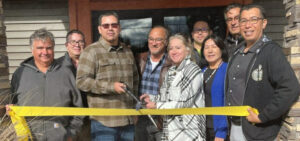
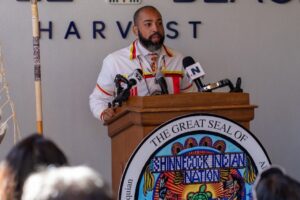

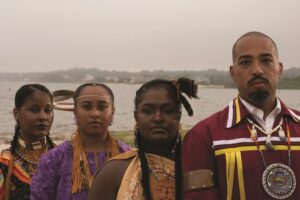
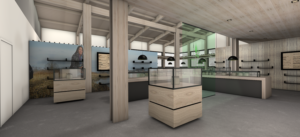
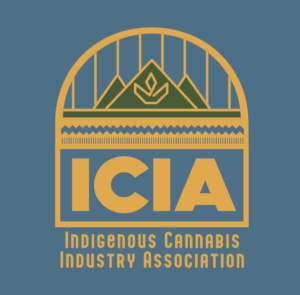
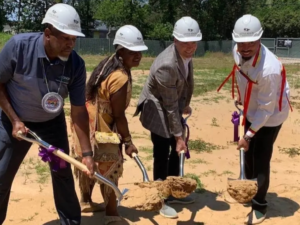

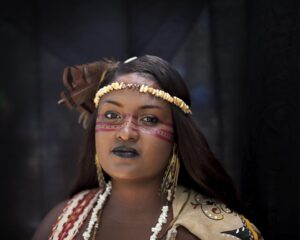
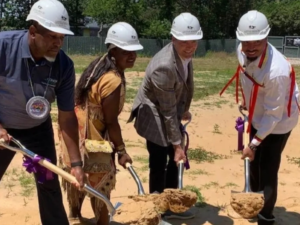
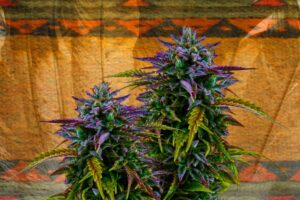
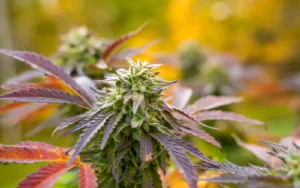
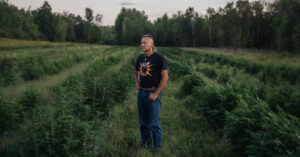
Comments are closed.